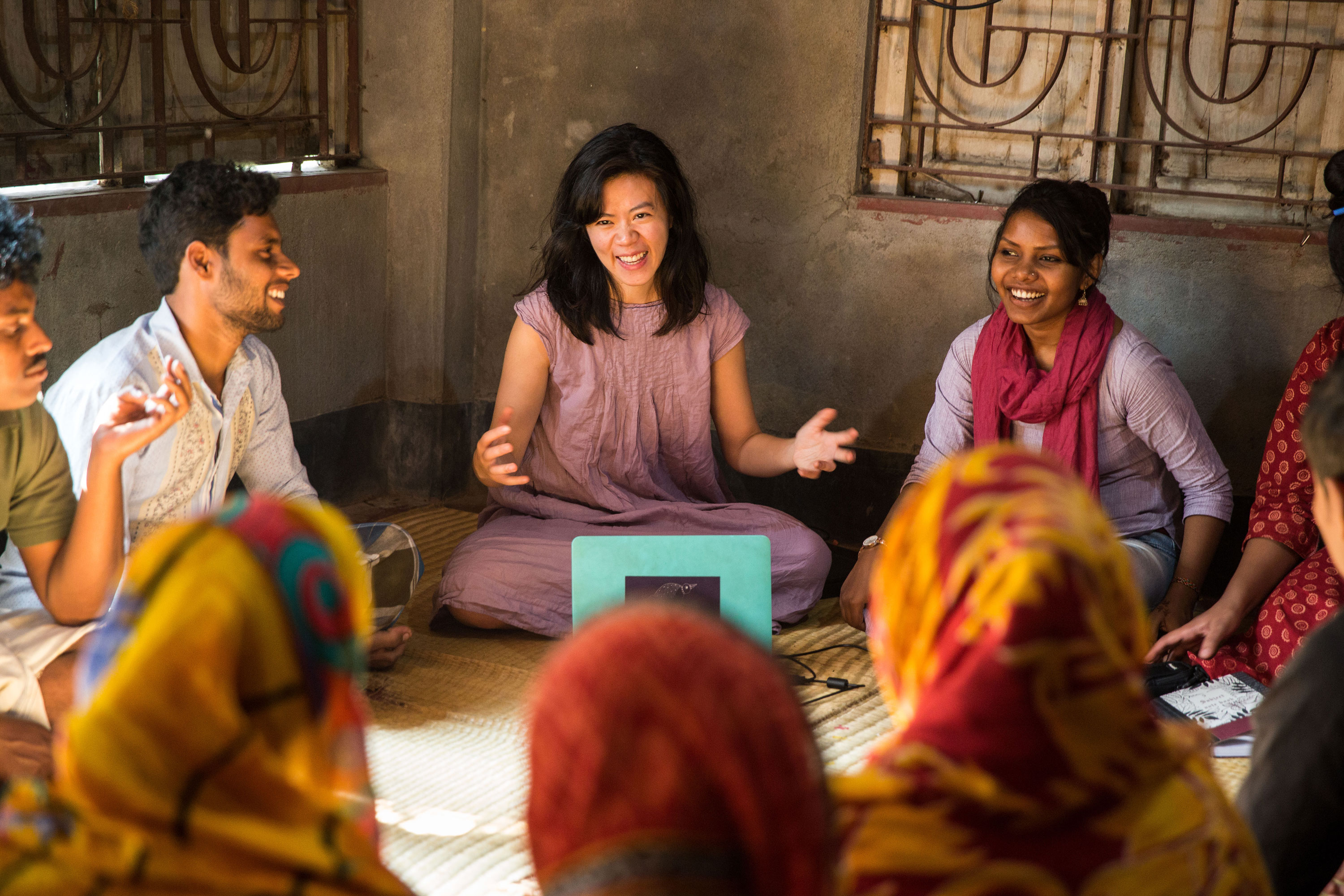Licensing tribal art globally, to support creativity close to home

In rural communities around the world, art with deep tribal roots—matrilineal tattoos, indigo scenes on clothing, stories drawn onto a mud wall—is a way of life. But it’s no way to make a living. Rebecca Hui, MCP ’17, is changing that.
As a UC Berkeley architecture student, Hui (above, center) traveled to India to study urbanization. She was powerfully affected by the disparity she saw there between urban and rural communities. A lack of access to education and jobs pushed many residents away from their homes and into urban areas, in search of opportunities those congested cities often couldn’t provide.
“I thought, why can’t we create prosperous villages as an alternative to migration?” she says.
The most significant resource for those in rural communities, Hui realized, was creative talent. She saw that villagers had artistic skills, but their creations had little monetary value in nearby markets. Convinced that wider demand existed for this art, she launched Roots Studio.
Hui and the Roots Studio team work with indigenous artists to digitally capture handmade art and license it to global brands for use in everything from fashion to home decor. Roots Studio artists earn royalties that can amount to 20 times the local value of a piece, and they have access to workshops on subjects like pattern design and financial literacy—all while preserving cultural traditions.
Roots Studio is now marking its fourth anniversary, and Hui credits MIT with helping the endeavor survive after its first year left her drained of energy and funding. Having struggled to secure grants for Roots early on, Hui decided to tap into MIT’s culture of supporting entrepreneurs with “moonshot ideas” like hers. Pursuing a master’s degree in city planning at the Institute, she learned more about the long-term impact of development initiatives, which helped her think through her approach.
By pitching the venture at competitions around MIT, Hui secured the funding to keep Roots moving forward. “I applied to everything I could,” she recalls. She also found support among fellow social entrepreneurs. “MIT and the people there gave me the courage to think I could do this,” she says.
Today, Roots Studio has a team of eight full-time employees who make connections to artists around the globe, while Hui is based in New York to pitch the art to brands. As Roots grows, she is most proud to see creatives of all types “supporting their communities in ways that go way beyond me,” she says. “It’s given me a lot of life and hope.”
Keep Reading
Most Popular
Large language models can do jaw-dropping things. But nobody knows exactly why.
And that's a problem. Figuring it out is one of the biggest scientific puzzles of our time and a crucial step towards controlling more powerful future models.
The problem with plug-in hybrids? Their drivers.
Plug-in hybrids are often sold as a transition to EVs, but new data from Europe shows we’re still underestimating the emissions they produce.
How scientists traced a mysterious covid case back to six toilets
When wastewater surveillance turns into a hunt for a single infected individual, the ethics get tricky.
Google DeepMind’s new generative model makes Super Mario–like games from scratch
Genie learns how to control games by watching hours and hours of video. It could help train next-gen robots too.
Stay connected
Get the latest updates from
MIT Technology Review
Discover special offers, top stories, upcoming events, and more.